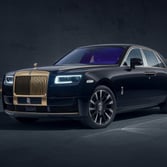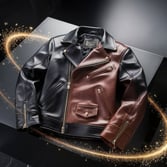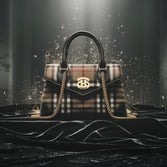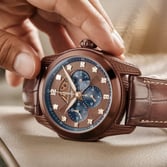The Secret Behind Luxury Brands: Why You Want What You Can't Have
This is the psychology behind the luxury branding that makes exclusivity work as a wellspring of strong consumer loyalty. Here's how brands have transformed scarcity into status:.
Astitva Dubey
10/8/20244 min read
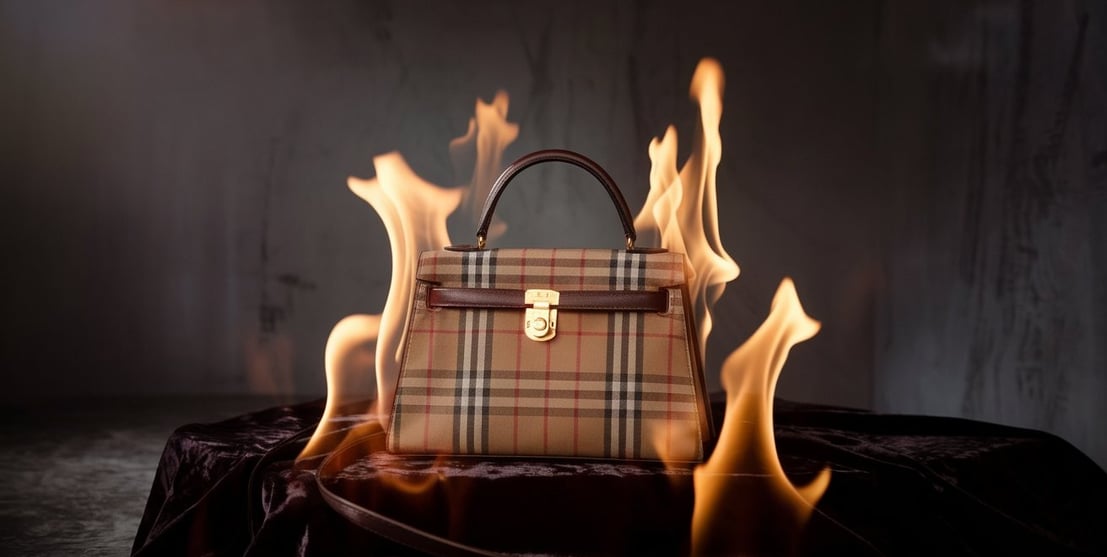

You know Burberry burned $37 million worth of stock to maintain its standards in the market ?
At first glance, it may look foolish or wasteful, but if you dig deeper into it, all that is an outcome of a very well-thought marketing strategy. Big companies know their customers inside out and understand the power of exclusivity. They do not just manufacture products; they make cults. They make their consumers feel like they are part of some sort of élite club, and instantly, they have an excuse to feel superior, special, even aspirational.
Before I delve deeper into this topic, let me ask you this: Do you know the difference between luxury products and premium products? Take a few minutes and think about it.
The difference fundamentally lies in emotional appeal. Premium products are just slight upgrading from regular versions of products. They provide a little value but, at the end of the day, remain products. For instance, take YouTube Premium. So, what is the unique selling proposition for YouTube Premium? Well, it's pretty simple: ad-free viewing, downloading videos to watch offline, and controls like play, pause, and skipping. You may listen to music, audiobooks, or podcasts even when your screen is off. It's about giving something tangible, something worth it. It's very functional and the pros are pretty obvious.
If we dive deeper, though, luxury brands give you something much more than merchandise. They give you dreams, visions, and lifestyles. They infuse emotions which transcend functionality far beyond
For example, Rolex: doesn't a $10 or $20 watch tell the same time as a $100,000 Rolex? Yet Rolex has positioned its own brand, so that to own one is not simply to tell time. It's a story of success. It's become a mark of achievement, a sign that you've made it. To the ones who have spent their lives working and finally getting to the top, social validation to fill the empty space created by fame and fortune is required. That's what a Rolex watch symbolizes. Here is why: it stands for the hard work you put into getting there and being able to live your dream. That is luxury branding: selling a bigger dream and a bigger story.
This is why luxury brands are not about simply manufacturing products. They are about making a difference in the minds of their consumers. They take advantage of consumers' psychology and create a sensation that makes them feel as though they are missing something extraordinary—something only chosen few have. There are, for example, Hermès bags, which are so exclusive that their waiting lists can reach up to months or even years. Because the products are scarce, they make all of them the more desirable. These bags no longer rank as accessories but rather with status symbols. If you own one, then it says you made it—that you attained a certain status, a certain level of social standing. This is how luxury brands sell the dream— "A dream that might not even be yours."
Heritage and Craftsmanship: One of the smartest moves that big brands make is they position themselves as paragons of precision, heritage, and craftsmanship. Luxury brands want to make sure that their products are not just good, but exceptional. Take Rolls-Royce, for example. Rolls-Royce doesn't sell cars; they sell exclusivity, rarity, and craftsmanship. They don't make cars for everybody. In fact, they conduct a very deep background check on buyers. So if you can't meet their social or financial standards, then the Rolls-Royce isn't going to be yours. They have a reputation for not building cars, but rather as if their cars are for elites. A Rolls-Royce doesn't just sell a car - they sell a legacy, a piece of art.
Now comes in brand loyalty. Brand loyalty is not an overnight phenomenon developed. It is something built over time through sustained marketing, after-sales superiority, and trust. The luxury brand followers do not buy just a product. They are buying into the ethos, the story, and promise of the brand. Loyal customers do not just come for more; they actually become brand champions. They generate word-of-mouth that progressively attracts more customers. It is a cycle of loyalty and desire.
Take, for example, Apple. Now, products of Apple may not be as unique as Rolex or Hermès. How Apple created a cult status is something we can relate to. People do not buy Apple products because it is functional. They are buying them as part of the Apple experience. People believe in what the brand represents and the values that it speaks to and the ecosystem that it brings. In fact, Apple has been able to erect such fantastic loyalty that many of its customers go out and buy their next device because they have been conditioned into accepting that the new device is much better than the old one and worth the investment.
Luxury brands use the tool of scarcity to instill desire. The more exclusive the product is, the more people want it. It's not so much having money to buy it but being in the right social group to own it. The whole theory of scarcity ties in with exclusivity. When the individual gets it into his head that only a chosen few have a right to something, then he instinctively wants to be on that elite list. That is why some brands, such as Hermès and Rolex, can charge such astronomical prices: they are selling something more than a commodity—they are selling a lifestyle.
Luxury brands also develop a community feeling with their customers. Once a person invests in one of these luxury products, he or she, typically feels that he or she becomes part of something special. It becomes a badge of honor. Instead of simply buying a product, they are purchasing a belief that makes them believe they are special, unique, and successful. They, therefore, produce an extraordinary bond of emotional attraction between the brand and the consumer that would make it much harder for them to shift to a competitor.
